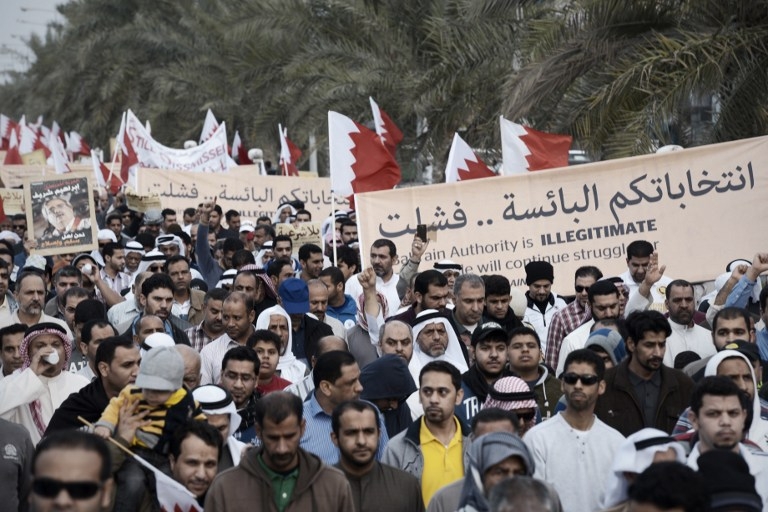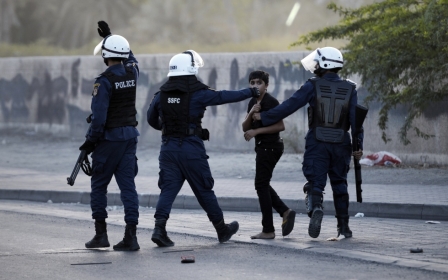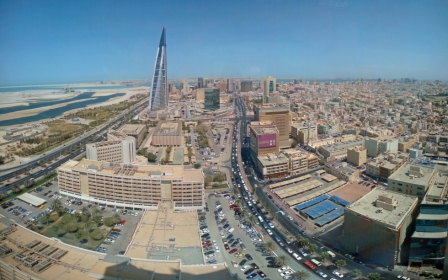Bahrain opposition chief re-elected, summoned by government

Bahrain's main opposition movement Al-Wefaq said Saturday that it had re-elected the leader of the banned Shiite group, who was summoned by police hours later.
Sheikh Ali Salman, 49, was handed a new four-year term at Al-Wefaq's general congress on Friday night, in a meeting held to comply with a law on associations that led to the three-month ban.
The interior ministry ordered Salman to appear before police investigators on Sunday, said Al-Wefaq, which described the move as "serious".
Neither the opposition group nor the ministry, which confirmed the summons, said why it was issued.
Police deployed in force as the notice was delivered to the Al-Wefaq chief's residence on the outskirts of the capital Manama, witnesses said.
It came a day after thousands of Shiites protested along a road linking two of their villages near Manama to call for the dismissal of the parliament and government.
"Bahrain Authority is illegitimate. The people will continue struggle for freedom," said some of the English-language banners they held aloft during a march.
Following the demonstration, which ended without incident, the opposition issued a statement saying "the government and the current parliament have no popular mandate".
In July, the ministry of justice sued Al-Wefaq demanding it rectify its "illegal status following the annulment of four general assemblies for lack of a quorum and the non-commitment to the public and transparency requirements for holding them".
The Manama administrative court slapped Al-Wefaq with the ban on 28 October and gave it three months to hold an assembly to elect its leaders.
The ruling came after Al-Wefaq announced it was boycotting a parliamentary election in November, the first in the Gulf state since Sunni authorities crushed Shiite-led pro-democracy protests in 2011.
Al-Wefaq, which withdrew its lawmakers from parliament in protest, denounced the vote as a "farce".
It has called for an elected prime minister who is independent from the ruling royal family.
Pro-government Sunni candidates, including Islamists, won 27 of the 40 parliamentary seats in the 22 November election, with the rest taken by Shiites including three women.
The parliament can examine bills proposed by King Hamad and has monitoring powers, while the Majlis Ash-Shura, a consultative council whose 40 members are appointed, can block legislation coming out of the lower house.
New MEE newsletter: Jerusalem Dispatch
Sign up to get the latest insights and analysis on Israel-Palestine, alongside Turkey Unpacked and other MEE newsletters
Middle East Eye delivers independent and unrivalled coverage and analysis of the Middle East, North Africa and beyond. To learn more about republishing this content and the associated fees, please fill out this form. More about MEE can be found here.




